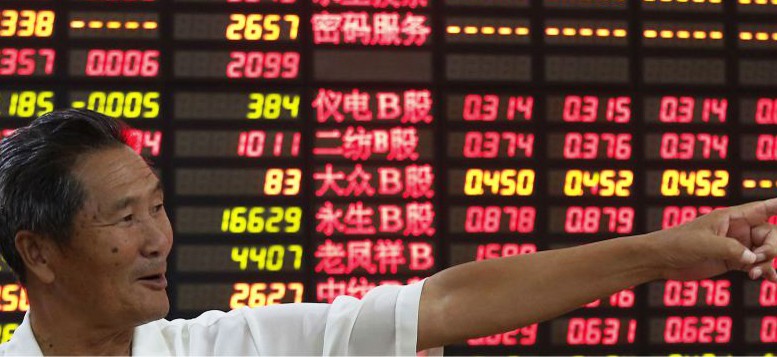A new bubble is growing in China. First it was the housing boom, which worried analysts and leaders across the globe. And now it is the stock market that is raising serious concerns. On the one hand, new small investors are very excited by this unprecedented rise in share prices. On the other, analysts warn of the serious risks involved in buying stocks and shares, as well as the fact that Chinese markets are prone to unexpected sharp declines. Economic forecasts in China continue to disappoint, the IMF estimates GDP will grow 6.8% this year, two tenths below the government’s estimate. But while recent economic data is painting a grim future for the country, Chinese stock markets are on the rise. Shenzhen and Shanghai’s stock markets have doubled their value in the past six months, reaching highs not seen in the past seven years. What is fuelling this investment frenzy?
Until very recently, Chinese investors’ preferred choice was the real estate sector. But massive new housing oversupply led many to fear that the real state bubble would eventually burst, so they abandoned their brick and mortar investment ambitions. But as investment options in China are not very varied, due to the limited access to international markets, after leaving the property market behind many Chinese rushed into buying shares on their local stock exchanges. The number of individual investment accounts grew 400% in the first quarter of this year.
Baofeng Technology, an online video company, is a case in point. Its shares went up a steady 10% on a daily basis for 30 consecutive days. Likewise, when Baofeng Technology launched its IPO in March, shares were valued at 7RMB. A month and a half after, the shares were valued at 157 RMB. Many other companies have followed suit and made their public offerings in the last few months. During consecutive days they have seen a rise in their share price of 10%, the limit set by Chinese regulations. The Shanghai Stock Exchange posted growth of 120% from May 2014 until 30 April 2015.
The idea that the boom in the stock market is caused by speculation rather than natural economic flows is becoming quite obvious: the shares of many companies soared, but their growth forecasts and profits remained the same. And many fear the unpredictability and volatility of these markets is becoming all too apparent.
But warnings have failed to prevent the hordes of speculators. A recent study published by a Chinese university tried to describe the profile of these newcomers to the stock market casino. According to the study, two thirds of them only have secondary education and left school when they were 15 or 16 years old. The income of those households which have recently entered the stock market is half of what investors had before the current stock market boom. They also lack experience and knowledge of how stock exchanges operate. So that is why official media and analysts are warning of the serious risks this new popular practice poses for the national economy.
“We have to let small investors know. We have to remind them of the real risks of investing in the stock market. But for the moment I see no sign that they are going to stop speculating, frightened by a possible drop in stock prices,” says Zhao Longkay, Professor of Economics at Peking University.
Chinese regulators are developing new rules to limit credit to small investors. Large amounts of money from opaque credit institutions can fuel share prices. But, if the market eventually suffers a drastic slowdown, these small investors will be forced to quickly sell their shares to repay loans and aggravate the collapse in share prices.






Be the first to comment on "From brick and mortar to stocks and shares; China’s new investment frenzy"